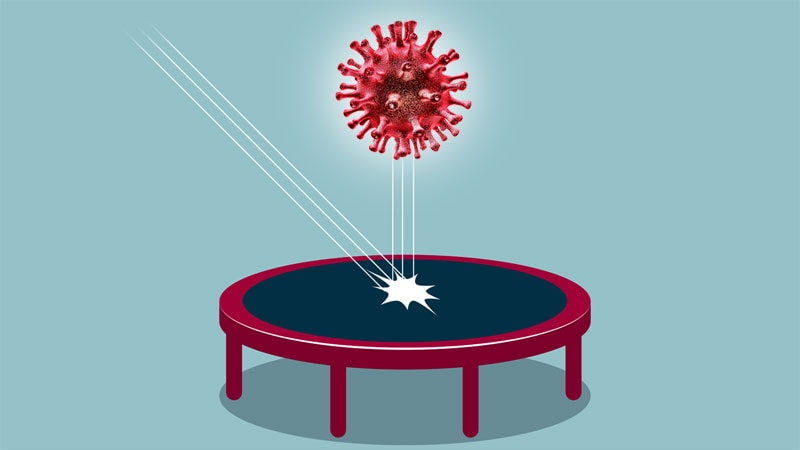New Covid-19 variants and waning immunity could see more New Zealanders catching the virus for a second time

As we head further from the peak of the vaccine campaign and the Omicron outbreak, people’s immunity will eventually start to wane. The coronavirus is also continuing to mutate, with subvariants like BA.4 potentially making it easier for people to be reinfected.
Does reinfection increase the risk of Long Covid?
University of Auckland Dr Anna Brooks says “we are hearing from our international partners that anecdotally, repeat infections, especially in children and adolescents may lead to a higher chance of long term health complications, including Long Covid.
“We know that vaccinations are excellent at protecting against severe illness, however they aren’t great at reducing the risk of Long Covid. Protective immunity will also wane over time. Symptomatic infections, even while triple vaccinated are common.
“In addition, surviving one infection unscathed does not mean you will be out of the woods with getting Long Covid. It might be a 2nd or 3rd exposure that triggers this illness.
“Many also don’t seem to realise that there are no treatments to reverse the debilitating symptoms experienced (shortness of breath, brain fog/cognitive impairment, extreme fatigue to name a few).
“Limiting exposure to the virus, even if previously infected and/or fully vaccinated is the best way to avoid the risk of developing long term health complications.”
If you’ve already had Covid-19, how well are you protected from getting it again?
The figure of three months of immunity is largely a generalisation, Brooks says.
“Cases of reinfection are definitely occurring within this time frame. Even if you’ve had Covid, you may have fairly decent immunity for at least a month or so, but you’re certainly not immune to further infections in the near future. The best approach is to avoid exposure, regardless of your vaccination or pre-infection status.”
University of Otago Dr Dianne Sika-Paotonu says many who’ve recovered from Covid-19 will have developed immunity at least for the initial months following infection, however re-infection risk with the SARS-CoV-2 virus remains.
“Although previous infection with the SARS-CoV-2 virus does offer some immune protection, this does wane over time.
“Importantly, recent evidence is indicating re-infections have been increasing with the Omicron variant of the SARS-CoV-2 virus.”
Will a second infection make someone more, less, or just as sick as the first time?
In the UK, Covid-19 reinfection estimates from their Office for National Statistics indicated that reinfections with the Alpha variant produced symptomatic Covid-19 in 20% of cases, while reinfections with the Delta variant caused symptoms in 44% of cases. For Omicron, 46% of cases had symptomatic Covid-19 (-reinfections were defined as 120 days between positive tests or 4 subsequent negative PCR tests between infections).
“This data showed that people reinfected with the Alpha variant were much less likely to get symptoms the second time, when compared to their primary infection. Delta and Omicron reinfections however were more likely to cause people to experience symptoms,” Sika-Paotonu says.
“One study from Qatar looking at the re-infection severity after initial infection with the Alpha and Beta variants indicated that overall, SARS-CoV-2 re-infections (i.e. another infection occurring at least 90 days after the 1st infection), tended to be less severe when compared with the primary infection.
“Ongoing work will be needed to understand more about whether re-infections for Omicron and all its subvariants are more or less severe, when compared to the primary infection. It is still important that those who may have already had a Covid-19 infection, strengthen their immunity with vaccination as well.”
Do variants and sub-variants increase the chance of reinfection?
“A study from Imperial College London based on the UK Health Security Agency and National Health Service data showed that the risk of re-infection with Omicron was more than 5 times higher when compared with Delta,” Sika-Paotonu says.
“Monitoring for new variants will be important moving forward particularly with further easing of border restrictions, and will be especially important for managing potential future outbreaks caused by any new variants arising overseas. Community spread in Aotearoa New Zealand will be rapid if any new variants appear that are resistant to current Covid-19 vaccines.
“While issues with unequal global Covid-19 vaccine coverage, availability, accessibility and distribution persist, and remain unaddressed, new variants will continue to emerge, develop and spread.”







